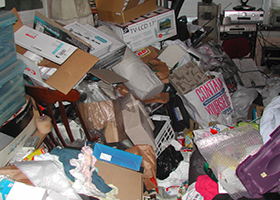


Arguably, capital spending has been the missing component in economic growth for a number of years. Now, according to a Wall Street Journal piece, corporations (well, at least those outside the overleveraged financial industry) are hoarding cash in record quantities.
As well they might. During the Great Liquidity Crisis of 2008, many non-financial corporations had difficulty rolling over their commercial paper â the daily flow of money that greases prompt payroll payments and eases day-to-day transactions to suppliers â right down the financial food chain.
âThe rising corporate cash balances could represent a longer-term behavioral shift in the wake of the deepest financial crisis in decades. In the darkest days of late 2008, even large companies faced the threat that they wouldn’t be able to do the everyday, short-term borrowing needed to make payrolls and purchase inventory,â says the WSJ.
Still, the flight to safety â or prudence â exacts a cost on investors.
âThey are earning almost no interest on their holdings of cash, making it more difficult for them to achieve the returns shareholders typically expect from them. That will put pressure on companies to pare down the cash holdings eventually.â
âEventually.â While a week is a long time in politics, as former British Prime Minister Harold Wilson once said, âeventuallyâ may have a much longer duration in capital markets.
